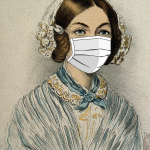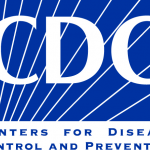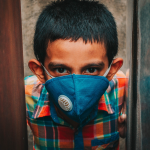In a recent conversation with John Batchelor (CBS "Eye on the World"), we explored the resurgence of measles amidst a wave of vaccine hesitancy sparked by the COVID-19 pandemic.
COVID-19 pandemic
The most infectious subvariant of the SARS-CoV-2 virus yet discovered is spreading through the U.S., and experts are predicting a January-February surge of COVID cases. A corollary is that we will also have more cases of long COVID, which is worrisome given new findings that long COVID, like acute infections, can be fatal. The best way to avoid long COVID is not to get infected in the first place.
The media is beginning to run the autopsy on our pandemic responses. (Although to be fair, outlets have been Monday morning quarterbacking from Day 1.) What exactly is the plan for the next pandemic? Of course, the real problem is that in dealing with the future, there's no plan at all.
The lockdowns caused by COVID-19 were a tradeoff between our actual and economic lives. The US, by and large, chose lives over economics. But rather than an either-or, could we have decided to save both? A new study suggests yes.
As a result of the latest Presidential election, state legislatures are garnering a great deal of publicity about a host of new laws surrounding voter registration. More quietly, several states, in a reaction to the COVID-19 pandemic, are also seeking to restrain the activities of our public health officials.
A recent survey found that fewer than 40% of Americans trust their federal public health agencies. Could “mission creep” into issues such as climate change, gun violence, and racism rather than a focus on traditional public health issues be a cause? Did mission creep impact our response to the COVID-19 pandemic?
Whether you call it pandemic waves or surges, there’s little doubt that we’re in the midst of one. It’s not necessarily as virulent as the initial wave, but it's problematic nonetheless. Are we opening up too soon, over-relaxing our vigilance? A new study suggests the surges are linked to behavior – not ours, but the virus’.
COVID-19 continues to dominate the nightly news and play upon the global stage. While the probability of personal infection remains low at about 10%, the consequences are dire and there is a need to place these continually recurring statistics into context.
The pandemic is not a monolithic event; it is a dance of the virus and our behavior. What we have learned about pandemics from the mistakes in our models. What about “long” COVID? Why does “if it bleeds, it leads” make sense?
Is it too early to try and summarize what we have learned about the pandemic? Pompeii's lessons on recovering from disaster. Rules to live by?
The risk of radiation on a trip to Mars, the dark segments of our DNA, the role of "caste" in defining the elite, and how will our war with COVID-19 end?
There are numerous opinions about the best way to handle (or perhaps end) the COVID pandemic. They range from more strict lockdowns, to "let's open as quickly as possible" coupled with the hope to keep it in check. A pandemic expert picks the first way. It's very unpopular. Is it even a realistic choice?











